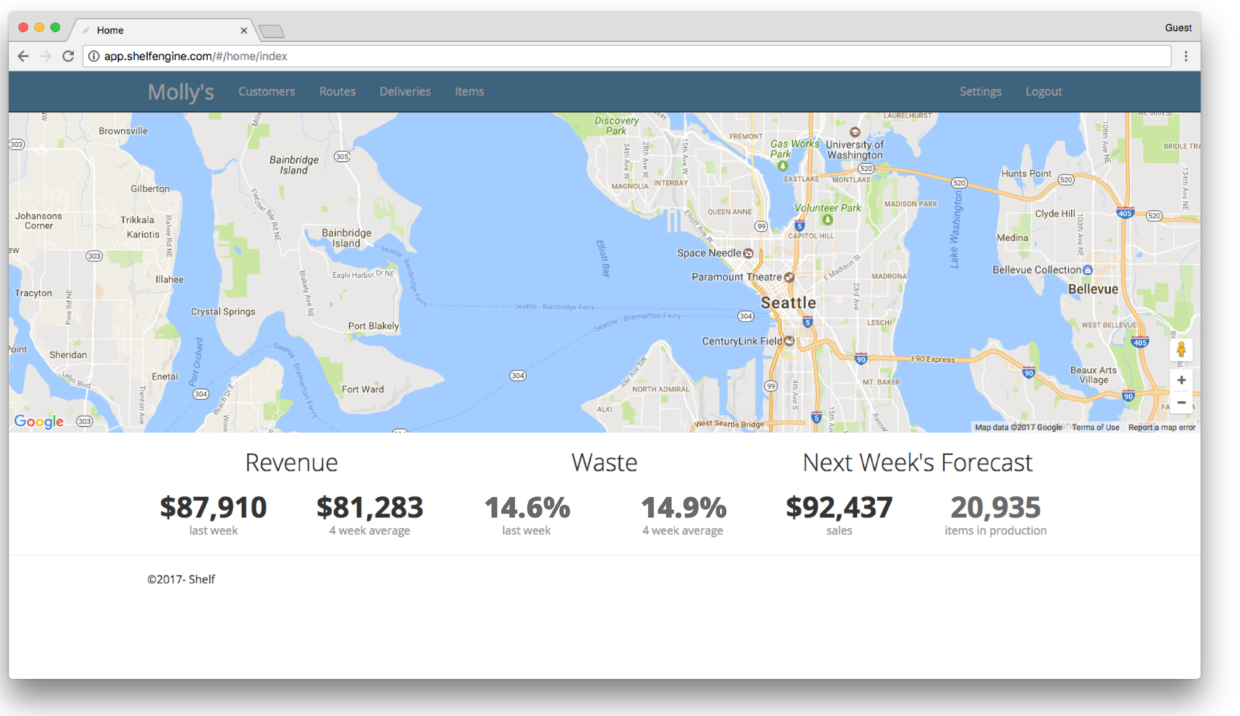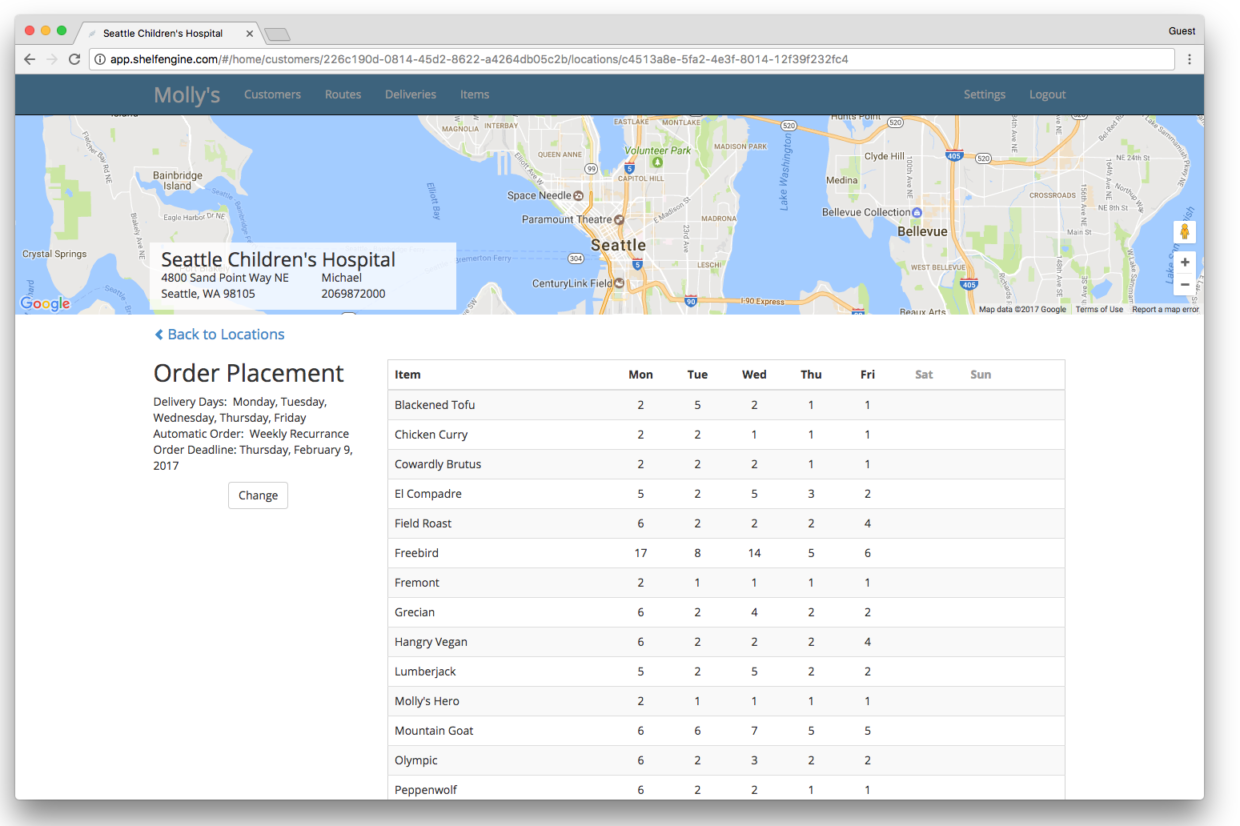
As his fresh salad and sandwich business started taking off a few years ago, Stefan Kalb realized he had a problem. Kalb, co-founder of Seattle-based Molly’s, learned how difficult it was to predict customer order patterns. At the time, Molly’s had 30 different menu items and delivered orders to more than 200 different customers each week.
The root of the problem was all about how Molly’s made bulk orders for perishable foods — they were often not perfect. When orders should have been increased, they were decreased; when orders should have been decreased, they were increased. Sometimes, when an order needed to be changed, nothing was adjusted.
In response, Kalb channeled his entrepreneurial energy and built software that helped Molly’s purchase the right amount of bulk food to fulfill customer orders. The financial impact was so substantial that Kalb has turned that idea into a entirely new company.
The result is Shelf Engine, a new 3-person Seattle startup that just raised a $800,000 seed round to help perishable food distributors and grocery stores fine-tune their item order patterns to both save money and reduce waste. The investment was led by Initialized Capital (Reddit co-founder Alexis Ohanian is a general partner), with participation from Founder’s Co-op, Liquid 2 Ventures (Joe Montana is a general partner), and other angels.
“As seed investors, we’re always excited to learn about new problems that have potentially valuable software solutions — food waste is one of them,” Ohanian wrote on ProductHunt today. “In addition, it’s also a social problem and at a time when there are still people who go hungry, Shelf Engine is a means to reduce waste and thus cost. The food industry hasn’t had the ability to solve this with software and this app helps retailers and distributors reduce their waste.”
In the company’s case study, it explains how many managers often make orders based on their current waste numbers — a flawed method, because “that decision isn’t based on a cumulation of waste and deliveries.” This creates a “whiplash effect” where orders are fluctuating from week to week and products are either selling out or have a high level of waste.
ShelfEngine is one of the first startups to utilize artificial intelligence for the perishable food industry, Kalb explained. There are existing solutions like GPS tracking and inventory management, but not so much in terms of data-crunching software that can predict what to order.

Shelf Engine uses an order prediction engine and probability models that analyze historical order and sales data, gross margins, and shelf life information — not just how much food is wasted. The more a customer uses the system, the more accurate its recommendations become.
“To make a real dent in your bottom line, your managers need to know exactly what to order,” Kalb said. “Shelf Engine uses several concurrent models that look at historical sales and correlations to generate a profit-maximizing order. We’re one of the first on the scene to be doing this.”
Kalb, who was born in France and graduated from Western Washington with degrees in mathematics and economics, co-founded Shelf Engine with Bede Jordan, a Microsoft veteran who was most recently the principal software engineering lead for the company’s HoloLens team. Kalb no longer works at Molly’s, but still owns the food maker.








